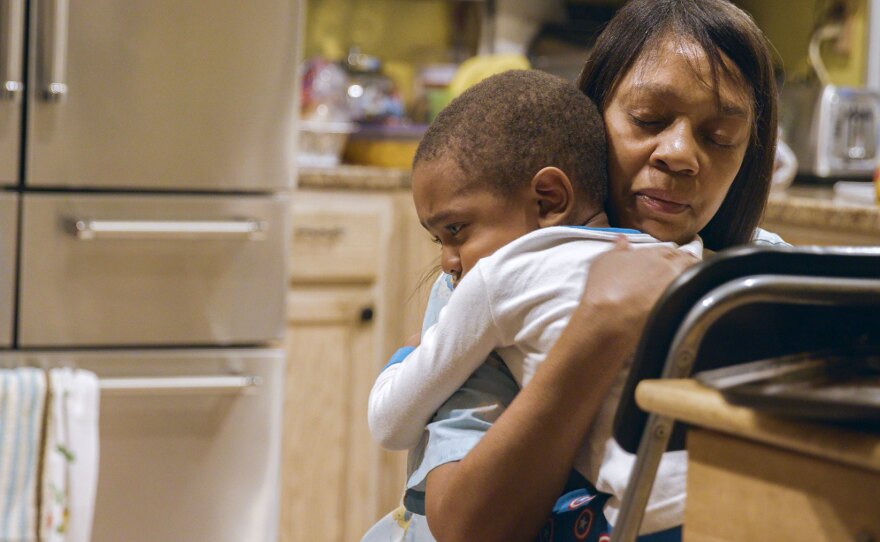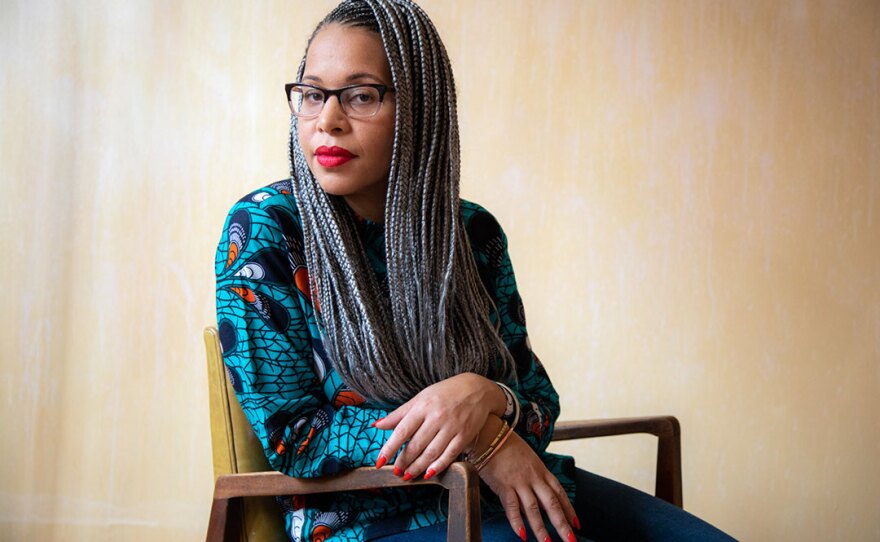The coronavirus pandemic has brought to light a childcare crisis, but for many workers, particularly in low-wage or essential work jobs, the crisis isn't new. The stories of some of these mothers are told in the film, "Through The Night," which profiles a 24-hour childcare center in the New York suburb of New Rochelle.
"Our protagonists are all people that we would now call essential workers," said Loira Limbal, the film's director and producer.
'Through The Night' screens virtually, on-demand, in the Human Rights Watch Film Festival Feb. 2 through Feb. 9.
On Wednesday Feb. 3, there's a 7 p.m. panel discussion with director Loira Limbal and Lena Simet, the senior advocate on poverty and inequality for Human Rights Watch.
For more films, schedules and information about festival passes ($25-40) or individual tickets for each film ($6-9), go here.
Over a period of approximately two years, the film follow several mothers and Nunu, who runs Dee's Tots 24-hour childcare center with her husband, Patrick. Dee's Tots is a mainstay in New Rochelle, particularly in the Black community, and multiple generations of mothers have depended upon Nunu. It's more than a job for Nunu and Patrick, who began taking care of neighborhood children at all hours when their own kids were young.
The film's focus — and its heart — is Nunu, and her tireless love for the work, the children and their parents. It's an unflinching portrait of what round-the-clock, essential work requires from individuals and the societal systems put in place to support them, but also of the toll this work takes.
"We have an economy where we have normalized the fact that people work multiple jobs, work around the clock and still have to choose between paying rent or buying groceries in any given month. And these are people that are doing everything quote, unquote correct," Limbal said.
The film is part of the Human Rights Watch Film Festival, which aims to spotlight social issues on a global scale. In a recent press conference, Heather Barr, the interim co-director of the women's rights division at Human Rights Watch, speaking from Pakistan, said that the United States has a particular problem.
"One of the things that really struck me about this film is that I'm part of a team of 12 people who've worked on women's rights around the world, and I've never heard of a 24-hour childcare daycare until I watched this film," said Barr.
And it's invisible work even within the U.S. "I never really thought of 24-hour childcare, until I had to use it," said Shanona Tate, a pediatric ER nurse and one of the mothers profiled in the film.
RELATED: Human Rights Watch Film Festival Begins Tuesday, Runs Through Monday
"Oftentimes, when people watch the film or have conversations about the film, we hone in on the childcare crisis," Limbal said. "Beyond the childcare crisis, there's just an overall crisis."
Families of color and single mothers are hit particularly hard by the childcare crisis in the United States. In lower-wage and frontline work positions, Limbal said that many employers limit the hours for their workers, in order to avoid paying for benefits.
Childcare is expensive, and many workers have to stitch together multiple jobs in order to afford childcare — which requires more childcare. The childcare structures also operate on incredibly low margins, with low-paying jobs.
"All of the folks in the film are working around the clock. None of them get any more than three to four hours of sleep a night. Sleep is perhaps one of the most essential human necessities, alongside with water and food. And again we have gotten to this point in the sort of U.S. brand of capitalism where sleep has been turned into this sort of luxury that only the lucky few who are privileged have access to," Limbal said.

The film was made before the pandemic, and it shows pre-existing inequities and insufficiencies for working mothers. Since the pandemic, things have worsened considerably for working mothers and for childcare centers.
"The system is a hot mess, and it's completely fallen apart. We're in systems collapse with the pandemic," Limbal said. Many childcare centers are closing, or facing reduced enrollment and new risks to contend with.
"They are the system and the safety net that the government refuses to provide to families," said Limbal. "They're weary. And in some ways, also feeling some anger and disappointment because when we do as a society talk about essential workers, and we hand out our symbolic gestures of gratitude to essential workers, oftentimes we don't even include people like Nunu and Patrick."
The film is part of the Human Rights Watch Film Festival, screened virtually via the Museum of Photographic Arts, Feb. 2 through Feb. 9. Wednesday night, Limbal will participate in a panel discussion after a watch party, though the film is available to watch on-demand through the week.








